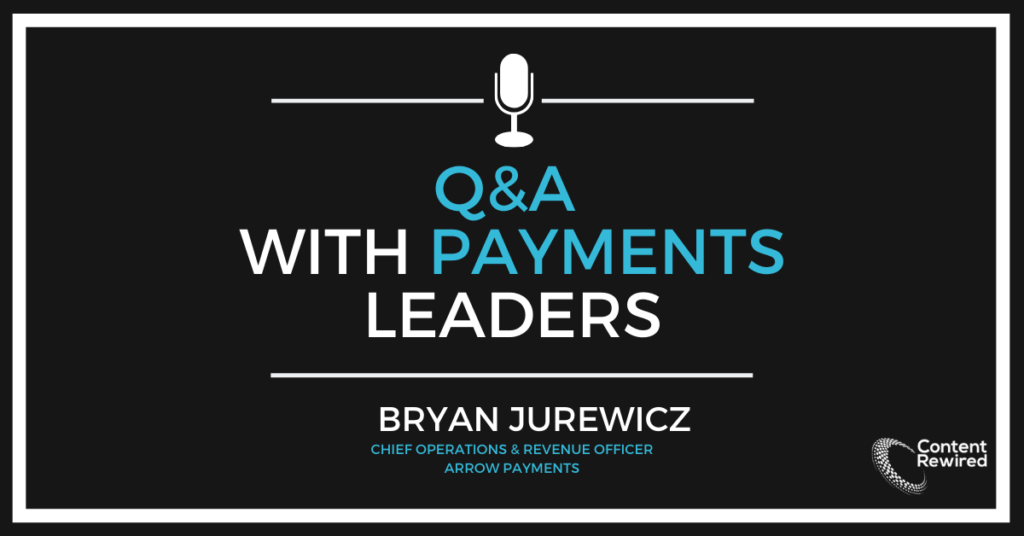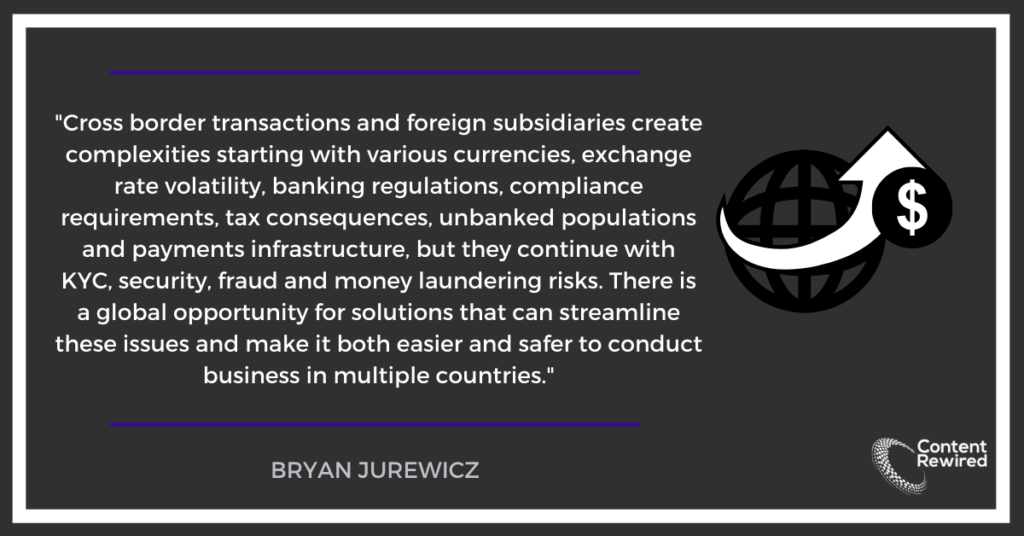Table of Contents
Last Updated on August 4, 2023 by admin

In part nine of our payments Q&A, we discuss digital payment solutions, consumer-centric payments, and the future of machine learning. We spoke with Bryan Jurewicz, Chief Operations & Revenue Officer of Arrow Payments, a consulting company offering secure, efficient payment processing.
Ashley Poynter: What is your “big prediction” for Payments in 2020?
Bryan Jurewicz: International payments continue to be a challenge in the growing world economy. Cross border transactions and foreign subsidiaries create complexities starting with various currencies, exchange rate volatility, banking regulations, compliance requirements, tax consequences, unbanked populations and payments infrastructure, but they continue with KYC, security, fraud and money laundering risks. There is a global opportunity for solutions that can streamline these issues and make it both easier and safer to conduct business in multiple countries.

Consolidation amongst large companies acquiring disruptive technology companies will also continue to create an impact as long as lending rates remain low and markets create positive gains.
Ashley: Who will the big players be? Also, what technology/(ies) will lead the headlines in transforming payments as we know it?
Bryan: There is a growing fight for consumer attention between Apple, Google, Samsung, PayPal/Venmo, Zelle and other digital payment platforms to see who can own the customers, transactions and data exchanged through commerce. This will continue to disrupt how transactions are handled, the flow of money, costs of transactions and advertising to the consumers.
Ashley: By next year, 40% of US consumers will be made up of Gen Z, who are spending an estimated $143 billion a year. How will this impact digital payments trends as well as how financial institutions and businesses respond to changing consumer demands?
Bryan: More mobile payments will make it harder to keep track of where payments are originating as mobile wallets use their own virtual cards to represent user’s cards. It will also be difficult to know who the cardholder is from an analytics and marketing perspective as the digital wallets will own the user information and control the transaction data.
Ashley: 2019 ushered in quite a bit of consolidation in the payment’s ecosystem (Fiserv buying First Data, FIS acquiring Worldpay, etc.). What do you think this signals in terms of the new landscape of the industry?
Bryan: Big players are finding it hard to innovate and advance quickly. This along with cash and stock rich companies fosters a buy vs build strategy from large players. They don’t have to spend their own resources to test new concepts and gain market penetration. They can sit back, watch for winners, buy the strong companies and continue to advance their growth without the risk of their own research and development investments. Consolidation of companies also consolidates control of information, decision making and industry influence amongst the largest players. This can accelerate disruption and advancements while limiting access to the positive results to those in control.
If you missed our other Q&A articles, you can view them here:
- Payments Q&A: IBM’s Dave Maddox on Consolidation, Emerging Payment Platforms, and Blockchain
- Payments & Fintech Q&A: Scarlett Sieber on Apple Card, Gen Z, and Cryptocurrency
- Quick Hit Payments Q&A with Holly Hughes
- Payments Expert Q&A: Gregory Leos Talks Acquisitions, Digital Payments, and Mobile Skepticism
- Payments Leaders Q&A: Fiserv’s Stephanie Foster Discusses 2020 Predictions, Connected Experiences, and Open Banking
- Payments & Cybersecurity Q&A: Dominic Vogel Talks Data Breaches, PCI Compliance, and Top Payments Threats
- Real-Time Payments Q&A: David Jackson Talks Faster Payments Task Force and Real-Time Payments
- Payments Q&A: TM Praveen talks Payments Digitalization & Machine Learning
Stay tuned in the coming weeks. I will be interviewing more experts on the evolution of the payments world, shifts in the ecosystem, and what to expect in 2020.
If you’re interested in participating in one of our Q&A With the Experts series, please send us a note here.



